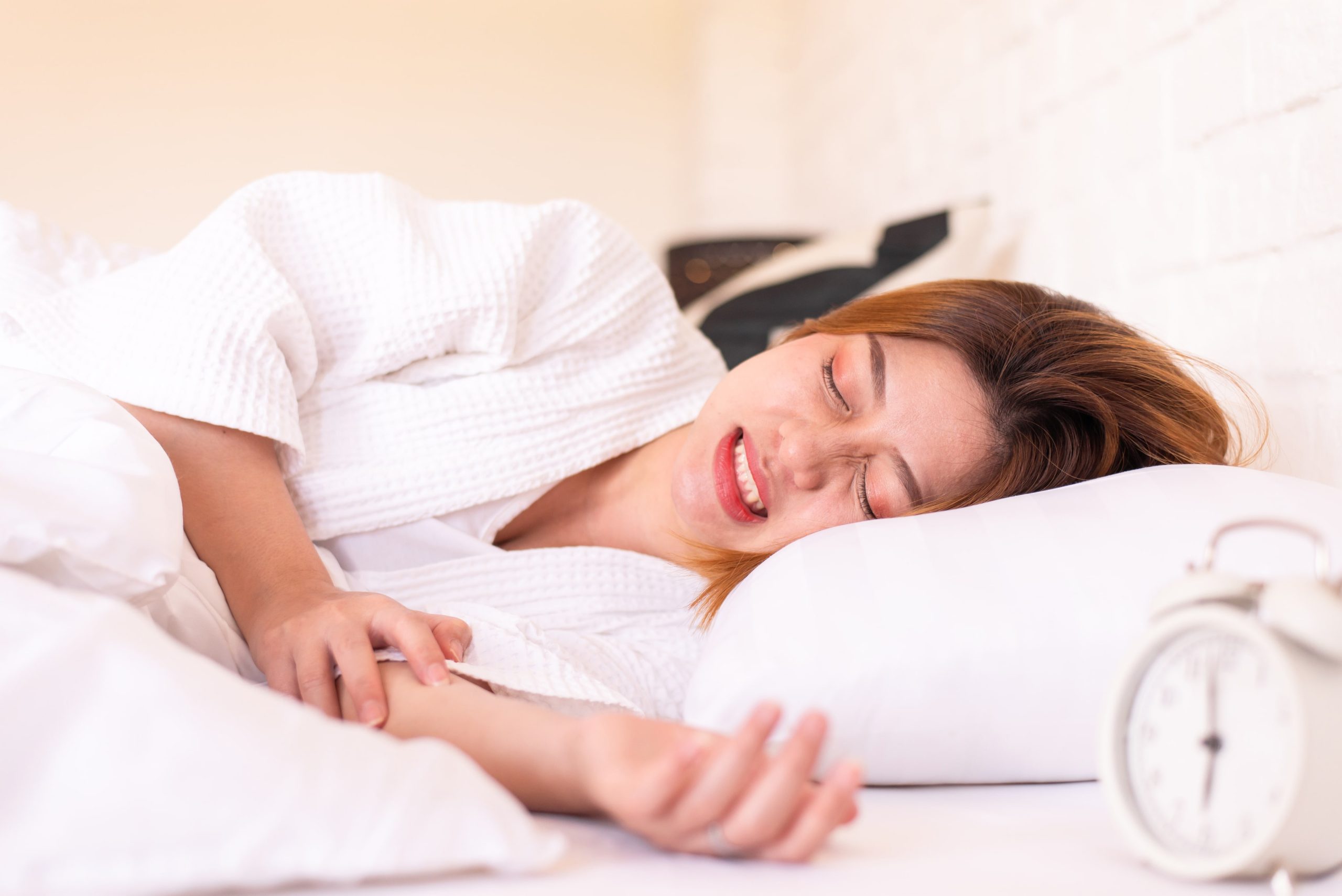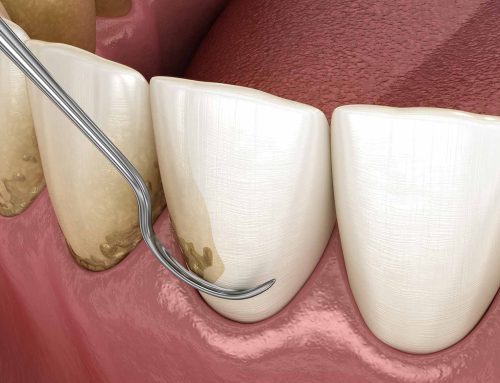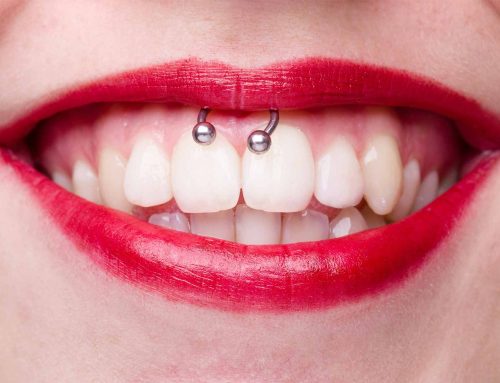Bruxism is a common condition that can affect people of all ages. This functional problem manifests itself in the form of jaw clenching and teeth grinding. The phenomenon can occur during the day or the night, outside of the times when the sufferer would normally be chewing or swallowing.
Luckily, solutions exist to help diminish the harmful effects that grinding the teeth can have on one’s oral health.
Keep reading to learn some of the strategies you can adapt, as needed, to get a good night’s sleep and preserve your smile.
What are the symptoms of teeth grinding?
Since teeth grinding can present in several different ways, it’s essential to recognize the symptoms in order to take the appropriate actions.
Here are some of the symptoms to look for:
- Abnormal wear on the teeth
- Broken fillings, crowns, implants or dentures
- Pain or stiffness in the jaw, neck or facial muscles
- Difficulty fully opening the mouth
- Daytime fatigue
- Headaches or earaches
What are the causes of bruxism?
Even though we don’t fully understand the exact causes of bruxism, it’s easy to identify some of the factors that contribute to its onset.
Problems that may lead to teeth grinding include the following:
- Stress and anxiety
- Depression
- Trouble sleeping
- Medications
- Occlusion (bite) disorders
- Neurological conditions
Treatments for bruxism
When it comes to choosing a treatment for bruxism, there’s no miracle cure to eradicate it completely. However, it is possible to minimize the consequences that teeth grinding can have on your oral health. The first step is to identify and address the underlying causes.
Reducing stress and anxiety
If the problem stems from lifestyle habits, various methods, including behavioral therapy, may be effective at mitigating bruxism and its symptoms.
Relaxation techniques, such as meditation, may also help relax the muscles of the jaw and ultimately reduce nighttime teeth grinding.
Avoiding stimuli before going to sleep
Excess consumption of caffeine, alcohol or tobacco can aggravate bruxism. Avoiding these substances several hours before bedtime can help prevent teeth grinding during the night.
Mitigating bruxism through orthodontics
In certain cases, occlusal disorders can be at the root of bruxism. Correcting problems with your bite can eliminate some of the unnecessary tension in the jaw, reducing the risks of grinding your teeth while you sleep.
Protecting your teeth with a mouth guard
Using an occlusal splint is unquestionably the most effective method of protecting your teeth from wear caused by involuntary teeth grinding. This veritable dental shield creates a protective barrier between the upper and lower teeth.
Mouth guards can do the following:
- Protect the teeth from wear
- Reduce jaw pain
- Decrease tooth sensitivity
- Relieve headaches
- Improve sleep quality
- Prevent broken teeth
Prior to getting a mouth guard, you will need to make an appointment with a dentist, as it isn’t necessarily the best treatment in every case.
Take charge of your dental health
Do you have the tendency to grind your teeth while you sleep? If you suffer from bruxism and the symptoms are affecting your quality of life, don’t hesitate to schedule an appointment with Clinique Dentaire Charles Trottier.
The courteous, professional team will offer you an in-depth consultation and a personalized plan to help you maintain optimal dental health as long as possible!
Réferences :
JEAN COUTU HEALTH. Bruxism: recognize it to correct it.
COLGATE. Teeth Grinding: How to Stop Grinding Your Teeth at Night!





